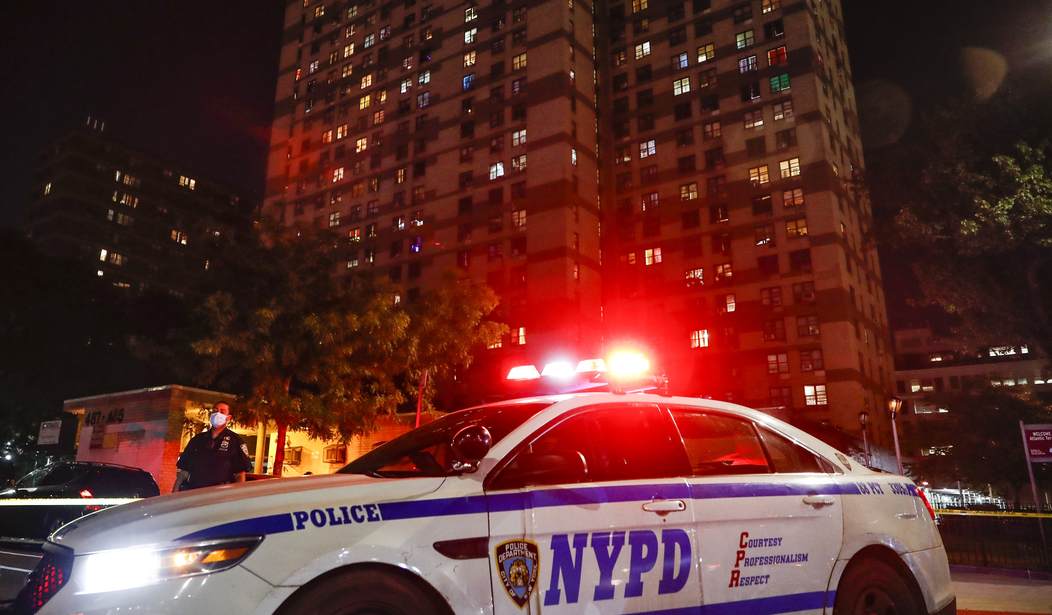You have undoubtedly heard that crime is down in a lot of places. One trick often employed in places like San Francisco is not to report crimes. Shoplifting is no longer pursued, and employees of businesses can be fired for preventing shoplifting. So property theft crimes drop not because theft is no longer happening but because it is no longer treated as a crime.
Atlanta, Georgia, has seen a 21% drop in year-over-year crime. The Mayor of Atlanta, Andre Dickens, faced with a secession effort in the northern wards of his city due to crime and violent protests from the far left over a police training facility, has deployed a novel trick in The City Too Busy to Hate. He actually pushed law enforcement to enforce the law.
Under Dickens and Atlanta Police Chief Darin Schierbaum, the city began aggressively cracking down on gun crimes and gang violence. Buckhead, the financial center of the South and Atlanta's northern ward, began agitating for secession after crime spiked during COVID lockdowns. Random suburbanites were shot while jogging, home break-ins increased, carjackings increased, violence was on the rise after the former Mayor, Keisha Lance Bottoms, decided to side with rioters against the police.
Then-Mayor Bottoms and the former Fulton County District Attorney, in a series of high-profile cases, prosecuted police officers for policing. They targeted one officer for shooting a man who had attacked an officer, fled and attempted to tase the pursuing officer. That officer shot and killed the man and got prosecuted. After Dickens' election, the charges were dropped. Other officers were disciplined for trying to get college students to stop their car during a riot. The result was a collapse of police morale, police leaving the force and difficulty recruiting.
Dickens, upon taking office, had to do two things. First, he needed to calm Buckhead's nerves. Its departure would have dramatically cut tax revenue for the city. Second, he needed to ameliorate police morale. He did both by letting the police actually police.
Recommended
The results speak for themselves. Hotels in Buckhead no longer warn visitors not to go out past dark. It feels safe to go out, and the mass of people in Buckhead after dark suggests the feeling is reality. People are returning to malls and restaurants. Businesses are no longer loudly screaming for change, and much of the Buckhead secession movement has dissipated.
That's not to say there are no problems. Drug problems remain. Homelessness and related crime are a problem. But the violence the city had seen has diminished as police have cracked down on unlawful gun possessions, gun crimes and gang violence. Buckhead has breathed a sigh of relief. People are more prone to walk down Peachtree Street after dark. People have returned to Piedmont Park. The police are visible.
Atlanta stands in stark contrast to cities like Washington, D.C., where the Mayor and City Council have hindered the police and sent mixed signals about crime control. In New York, Mayor Eric Adams has sent police back into the streets deploying variations of "stop and frisk." It has both cut crime and inspired progressives, including the local district attorney, to campaign against the efforts to reduce crime. Progressive prosecutors in New York, not the Mayor or police, are causing the problems. In West Coast cities, law enforcement has largely given up, and crime reductions are often because police and victims have given up reporting the crimes.
Walk into a CVS in New York City or San Francisco and you will find most of the products behind glass. You will have to wait for an attendant with a key to unlock the windows. Walk into the CVS in Midtown Atlanta and few products are locked behind glass. Go up to Buckhead and even fewer are locked up.
Atlanta has had both leadership at the top and community buy-in from residents who feel safer and trust the police. The police have been engaged in the community and are both visible and available to residents. It has worked, and the results speak for themselves. Learning should not be amazing, but getting tough on crime reduces crime. Other metropolitan areas could learn from Atlanta's Mayor Dickens.
To find out more about Erick Erickson and read features by other Creators Syndicate writers and cartoonists, visit the Creators Syndicate webpage at www.creators.com.

























Join the conversation as a VIP Member